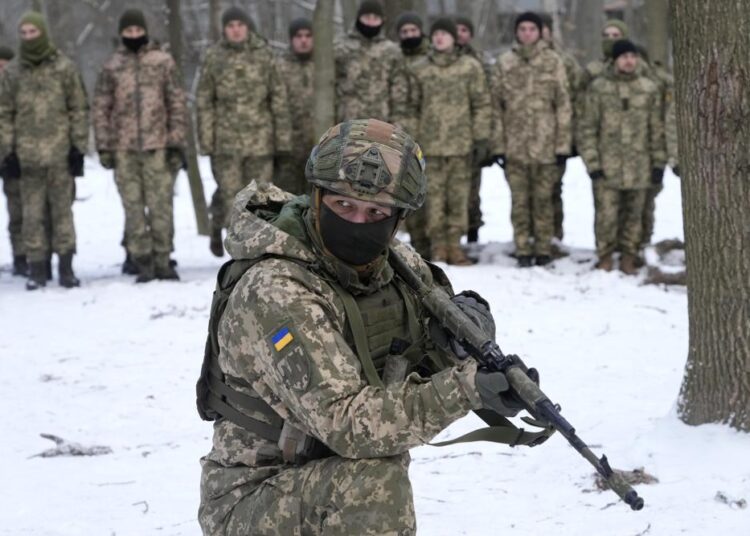BRUSSELS — NATO said on Monday that it’s putting extra forces on standby and sending more ships and fighter jets to eastern Europe as Russia continues its troop build-up near Ukraine, according to AP.
It said that it’s beefing up its “deterrence” presence in the Baltic Sea area. A number of members of the 30-country military organisation have offered troops and equipment.
Denmark is sending a frigate to the Baltic Sea and deploying F-16 war planes to Lithuania. Spain is sending ships to join NATO’s standing maritime force and considering sending fighter jets to Bulgaria. France stands ready to send troops to Bulgaria, NATO said.
“NATO will continue to take all necessary measures to protect and defend all Allies, including by reinforcing the eastern part of the Alliance. We will always respond to any deterioration of our security environment, including through strengthening our collective defence,” NATO Secretary-General Jens Stoltenberg said in a statement.
European Union foreign ministers sought Monday to show a fresh display of resolve in support of Ukraine, as Ireland warned that new Russian war games off its coast are not welcome given tensions over whether President Vladimir Putin intends to attack Ukraine.
“All members of the European Union are united. We are showing unprecedented unity about the situation in Ukraine, with the strong coordination with the US,” EU foreign policy chief Josep Borrell told reporters in Brussels.
Asked whether the EU would follow a US move and order the families of European embassy personnel in Ukraine to leave, Borrell said: “We are not going to do the same thing.” He said he is keen to hear from Secretary of State Antony Blinken about that decision.
Britain on Monday also announced it is withdrawing some diplomats and dependants from its embassy in Kyiv. The Foreign Office said the move was “in response to the growing threat from Russia.”
Arriving at the EU meeting in Brussels, Irish Foreign Minister Simon Coveney said he would inform his counterparts that Russia plans to holds war games 240 kilometres (150 miles) off Ireland’s southwest coast, in international waters but also within the country’s exclusive economic zone.
“We don’t have a power to prevent this happening but certainly I’ve made it clear to the Russian ambassador in Ireland that it’s not welcome,” Coveney said. “This isn’t a time to increase military activity and tension in the context of what’s happening with and in Ukraine.”
“The fact that they are choosing to do it on the western borders, if you like, of the EU, off the Irish coast, is something that in our view is simply not welcome and not wanted right now, particularly in the coming weeks.” he added.
During Monday’s meeting, which Blinken will attend virtually, the ministers will restate Europe’s condemnation of the Russian military build-up near Ukraine, involving an estimated 100,000 troops, tanks, artillery and heavy equipment, diplomats and officials said ahead of the meeting.






Discussion about this post